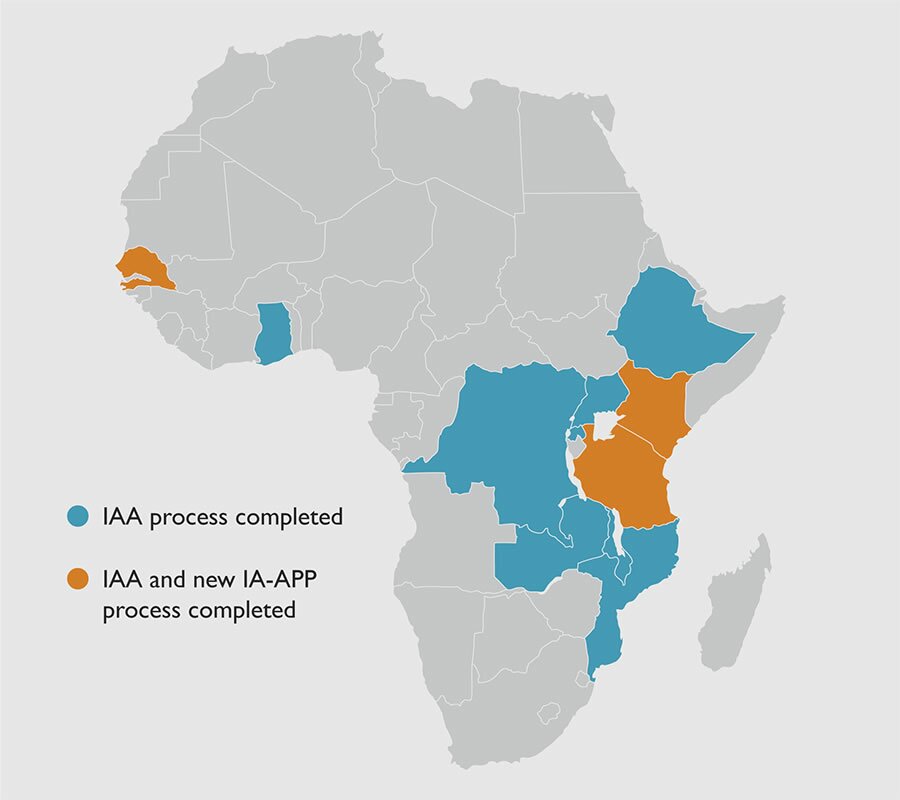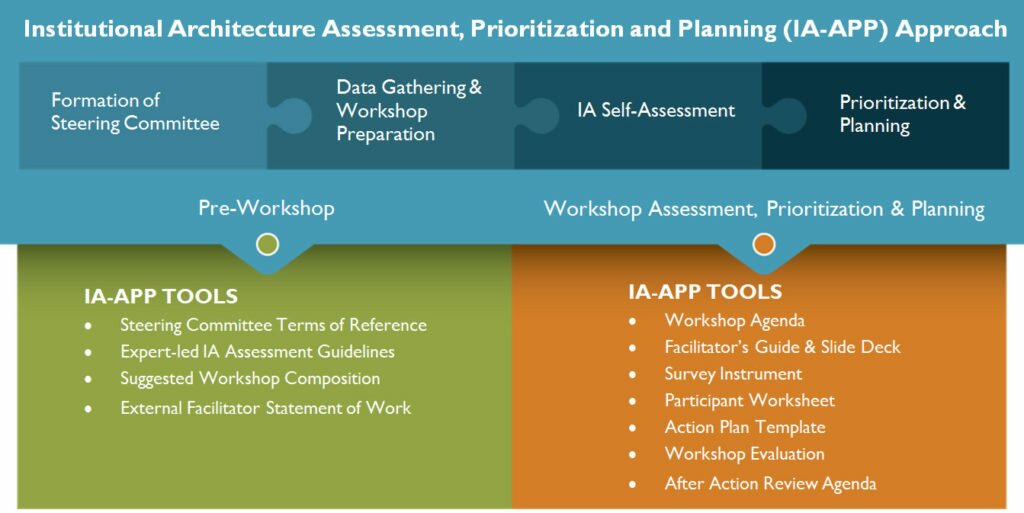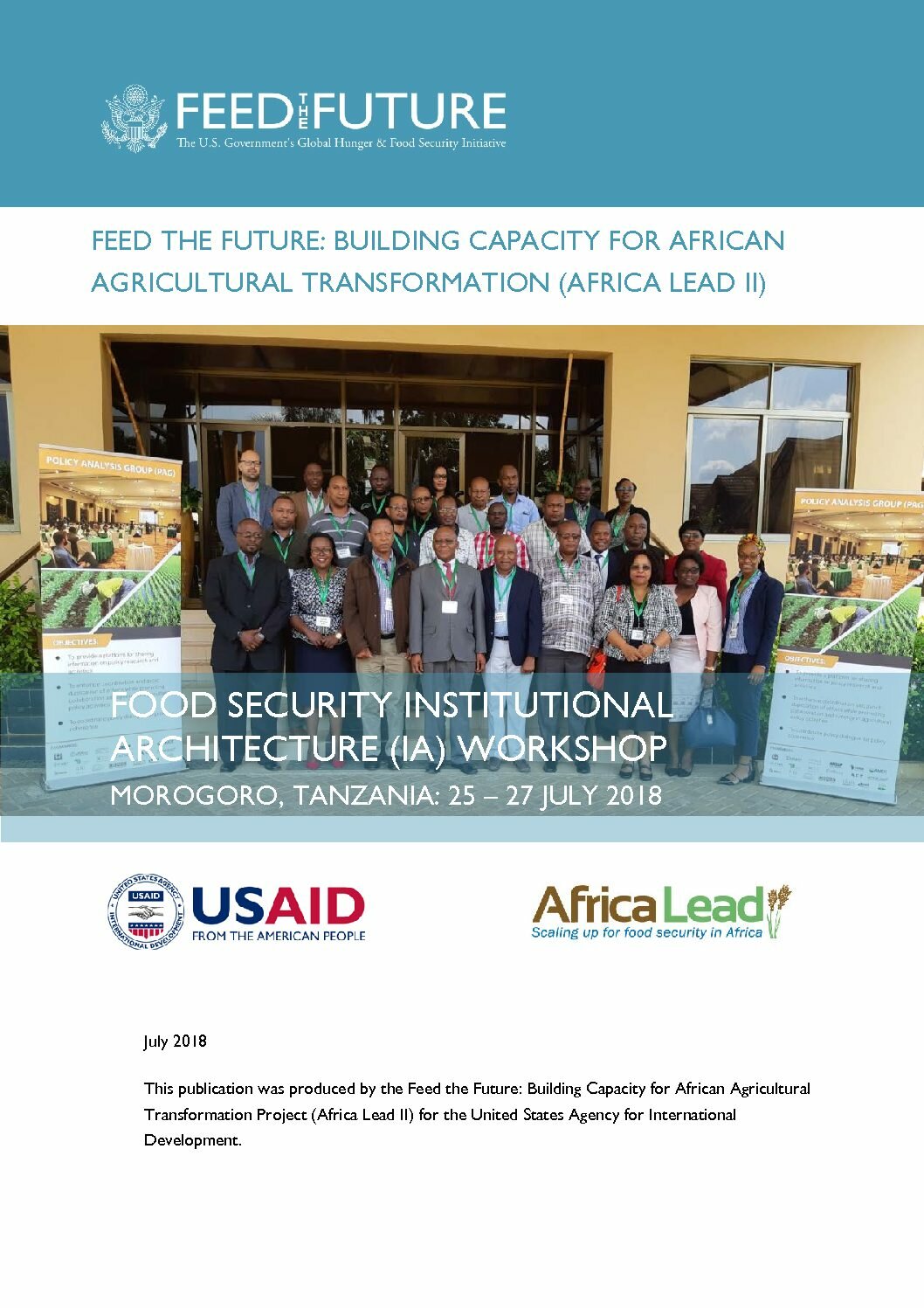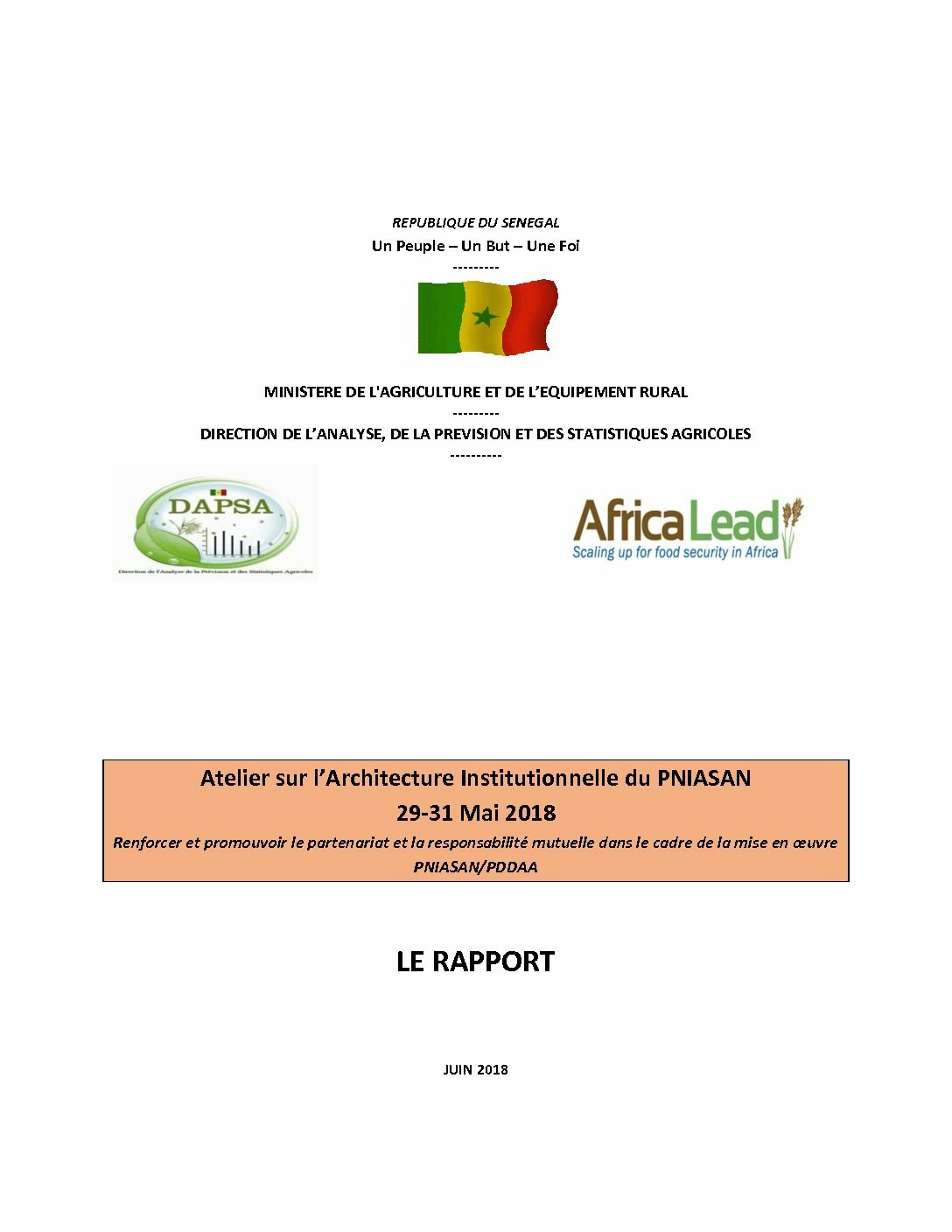About Institutional Architecture
Institutional architecture (IA) provides a framework for understanding and improving a country’s capacity to undertake transparent, inclusive and evidence-based policy change. This capacity is fundamental to improving food security, reducing hunger and malnutrition and strengthening resilience among individuals and communities. Investing in strengthening a country’s IA is a USAID Global Food Security Strategy priority.
Since 2013, in- depth assessments of national and regional-level IA have been used by USAID Missions and country stakeholders to better understand the policy development and implementation capacities and constraints that could stymie effective policy change processes in specific countries and regions.
The framework used for these assessments aligns with the commitments and principles of the African Union’s (AU) Comprehensive Africa Agriculture Development Programme (CAADP) and the Busan Partnership for Effective Development Cooperation.
Repeat institutional architecture assessments have demonstrated that this approach can be useful as a process and a tool to help an inclusive set of stakeholders reach a shared understanding of the strengths and weaknesses in a country’s IA and build consensus around priorities and actions.
Institutional Architecture Assessment, Prioritization & Planning (IA-APP) Toolkit
Based on this experience, Africa Lead developed a suite of customizable tools, known as the Institutional Architecture Assessment, Prioritization & Planning (IA-APP) toolkit, to facilitate a multi-stakeholder process using participatory self-assessment and collaborative decision-making to design a plan to strengthen IA. The process empowers stakeholders to collectively identify priority issues and co-develop solutions for strengthening inclusive, evidence-based policy change.
Catalyzing the IA-APP Approach
Countries interested in carrying out an IA-APP workshop convene a steering committee with key multisectoral representatives of food security, including government agencies responsible for agriculture and nutrition, civil society, and the private sector. The Ministry of Agriculture, Prime Minister’s Office, and/or a donor funded project might facilitate the steering committee. In Africa, the country CAADP focal point may chair the committee.
Before the workshop, the steering committee frames the IA-APP process within the context of ongoing national policy, planning or coordination processes. The steering committee ensures adequate representation from each sector and stakeholder group, that the agenda is relevant, and that background material and evidence is collected to inform decision-making.
During the workshop, participants self-assess the capacity of their institutional architecture, prioritize areas to focus on and agree on a plan of action.
After the workshop, the steering committee presents the IA-APP results to high-level stakeholders and advocate for adoption of the action plan. The steering committee may also stay engaged to ensure the action plan is executed and monitored on an ongoing basis and evaluated annually. Illustrative tasks for the steering committee are further detailed in the Steering Committee Terms of Reference.
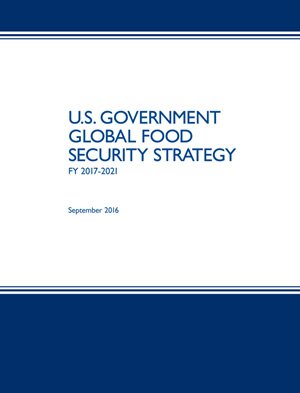 Institutional Architecture in the U.S. Government Global Food Security Strategy: FY 2017 – 2021 (Click to Download)
Institutional Architecture in the U.S. Government Global Food Security Strategy: FY 2017 – 2021 (Click to Download)
Cross-Cutting IR 5: More effective governance, policy, and institutions
To achieve this result, we will support the development of improved policy systems in individual partner countries, comprised of three essential components:
1. A prioritized policy agenda of key actions needed to reduce hunger, malnutrition, and poverty that are informed by evidence and committed to by partner country governments. These policy actions might fall into areas such as nutrition policy; resilience and risk management policy; land and natural resources tenure, rights, and policy; agricultural inputs policy; agricultural trade policy; enabling environment for private sector investment; and institutional architecture for improved policy formulation.
2. An institutional architecture for predictable, transparent, inclusive, and evidence-based policy formulation and implementation. This approach deepens partner country and regional capacity for data collection and evidence-based policy analysis while also building stronger platforms for inclusive policy dialogue, decision-making, and monitoring policy impacts.
3. Mutual accountability through a transparent, inclusive, and continual process of managing for development results. This includes stakeholder commitment to align actions with the government’s national agriculture, food security, and nutrition investment plans, and reporting on the execution of those commitments and their joint impact on poverty and hunger. Mutual accountability platforms increase collaboration and coordination among diverse groups, including government, private sector, civil society, and donors. In the African context, recently the Comprehensive Africa Agriculture Development Programme has started developing a country scorecard to better present how well countries are performing on mutual accountability that reflects progress of multiple partners.
Country Experience with the IA-APP

Kenya IA-APP (2018)
Africa Lead collaborated in February 2018 with the Kenyan Ministry of Agriculture and Irrigation, the Joint Agriculture Sector Secretariat, and the Agriculture Council of Kenya (an apex NSA group) to organize the first pilot of the APP workshop, bringing together 70 stakeholders from government, the private sector, civil society, think tanks, research organizations, and other development partners. It resulted in an IA Action Plan, including a commitment implement the IA-APP at the subnational level.
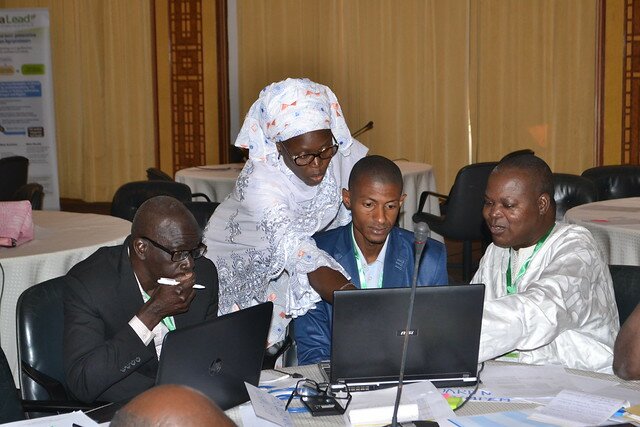
Senegal IA-APP (2018)
In May 2018, Africa Lead co-organized a three-day APP workshop with the Direction de l’Analyse de la Prevision et des Statistiques Agricoles (DAPSA) / Ministere de l’Agriculture et de l’Equipement Rural (MAER) as part of the review process to develop Senegal’s second generation National Agriculture Investment Plan (NAIP). During the workshop, participants identified constraints hindering effective implementation of the NAIP using the IA framework to guide the planning exercise.
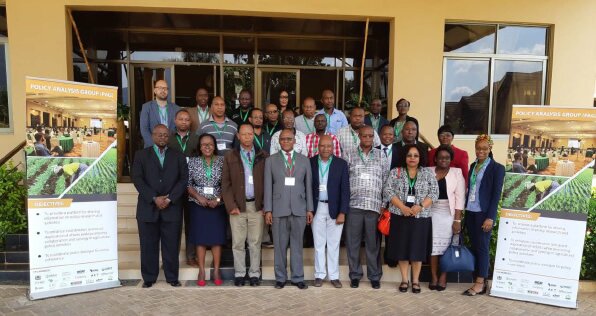
Tanzania IA-APP (2018)
In partnership with the USAID/Agricultural Sector Policy and Institutional Reform Strengthening (ASPIRES) project and the Policy Analysis Group (PAG), Africa Lead facilitated a three-day APP workshop in Morogoro, Tanzania in July 2018. The PAG utilized the IA-APP to help contextualize and explain progress against key policy reforms in Tanzania. In response, the PAG identified priorities to accelerate reform efforts and integrated the IA Action Plan into their overall workplan.
